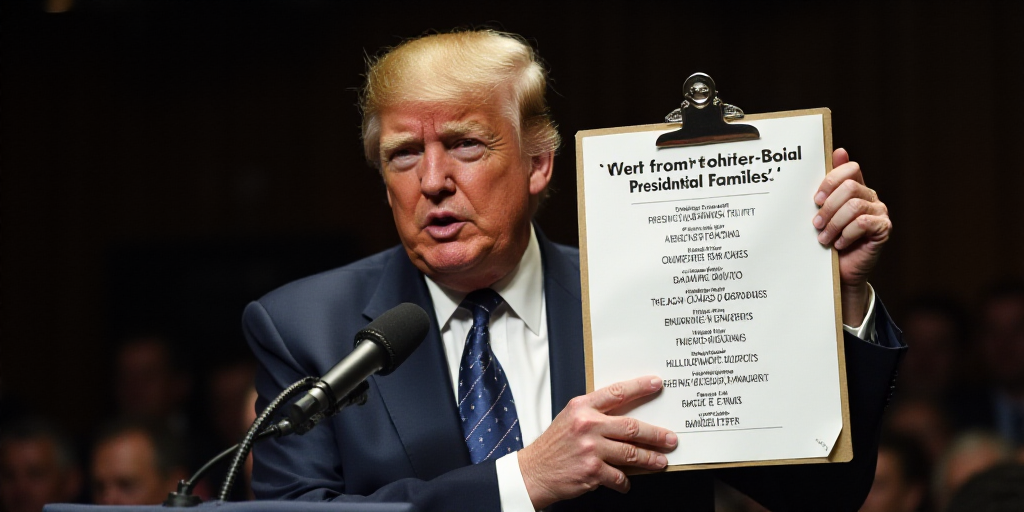Background on the Trade War Between China and the United States
The ongoing trade war between China and the United States has escalated, with both nations imposing tariffs on each other’s goods. The conflict began in 2018 when the Trump administration imposed billions of dollars worth of Chinese imports with tariffs, citing unfair trade practices and intellectual property theft by China.
The Recent Escalation
In response to these tariffs, China has retaliated with its own set of duties on U.S. goods. The tension further intensified when the White House warned that China could face tariffs as high as 245% on U.S. imports, following the implementation of countermeasures in this trade war.
China’s Official Response
Chinese Ministry of Foreign Affairs Statement:
“If the United States continues to play the numbers game with tariffs, China will ignore it. If the U.S. insists on substantially infringing upon China’s rights and interests, China will resolutely counterattack and fight to the end. China does not want a fight but is not afraid of one either.”
The Chinese Ministry of Foreign Affairs emphasized that the U.S.’s repeated imposition of abnormally high tariffs on China has become a meaningless numerical game. They noted that they have taken note of the U.S. announcement regarding the 245% tariff on their products, stating that such actions only expose the U.S.’s tactics of using tariffs as weapons and exerting intimidation and coercion.
Contextualizing China’s Stance
China’s spokesperson highlighted that this tariff war was initiated by the United States. The Chinese government defended its countermeasures as “reasonable and legal,” aiming to safeguard their legitimate rights and interests, as well as international fairness and justice.
They urged the U.S. to abandon its extreme pressure approach, stop threatening and blackmailing, and instead engage in dialogue with China based on equality, respect, and mutual benefit.
Understanding the U.S. Trade Act of 1974
The U.S. Trade Act of 1974 grants the President authority to take necessary measures, including retaliatory tariffs and non-tariff actions, to eliminate any act, policy, or practice by a foreign government that violates an international trade agreement or is unjustified and discriminatory, hindering U.S. trade.
U.S. Tariff Breakdown
The U.S. tariffs encompass various categories:
- Up to 125% retaliatory tariffs
- 20% tariff addressing the fentanyl crisis
- Tariffs on specific products under Section 301, ranging from 7.5% to 100%
China’s Observation on Tariff Accumulation
Chinese Ministry of Commerce Spokesperson Statement:
“We have observed that the accumulated tariffs on some Chinese exports to the U.S. have reached 245%, exposing the irrationality with which the U.S. has instrumentalized tariff usage.”
Key Questions and Answers
- Q: What sparked the trade war between China and the U.S.?
A: The conflict began in 2018 when the Trump administration imposed tariffs on billions of dollars worth of Chinese imports, citing unfair trade practices and intellectual property theft by China.
- Q: What is the U.S. Trade Act of 1974?
A: This act authorizes the U.S. President to take necessary measures, including retaliatory tariffs and non-tariff actions, against foreign governments violating international trade agreements or engaging in unjustified and discriminatory practices hindering U.S. trade.
- Q: What are the categories of U.S. tariffs imposed on China?
A: The tariffs include retaliatory tariffs up to 125%, a 20% tariff addressing the fentanyl crisis, and tariffs on specific products under Section 301 ranging from 7.5% to 100%.
- Q: How has China responded to U.S. tariffs?
A: China has retaliated with its own set of duties on U.S. goods and emphasized that it will ignore the U.S.’s tariff “games.” They have defended their countermeasures as reasonable and legal, aiming to safeguard their rights and interests while upholding international fairness and justice.






